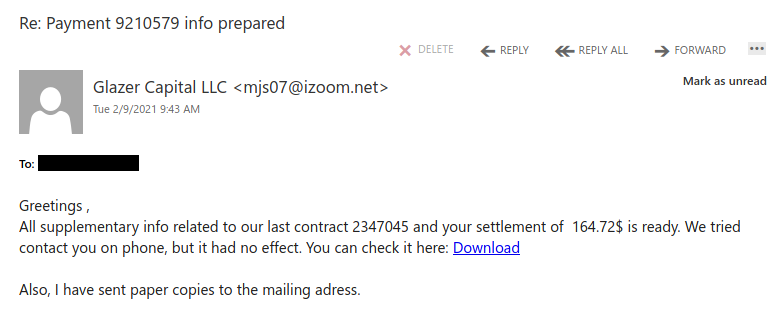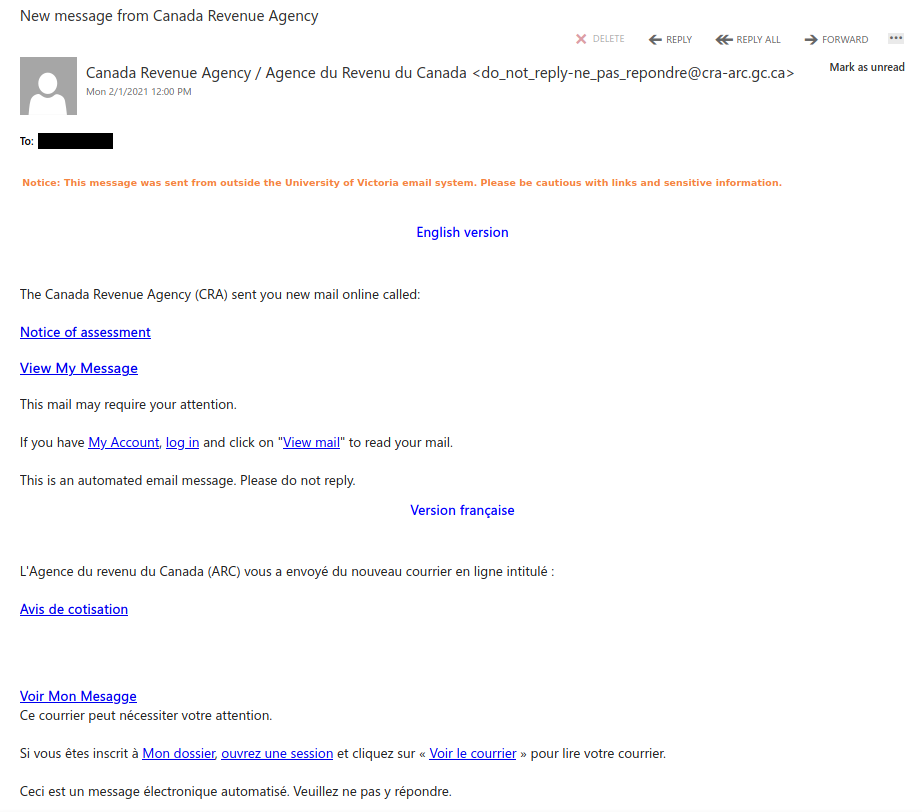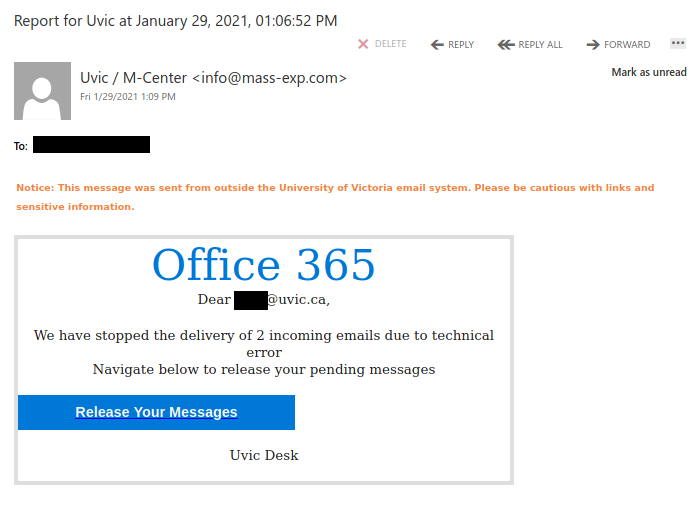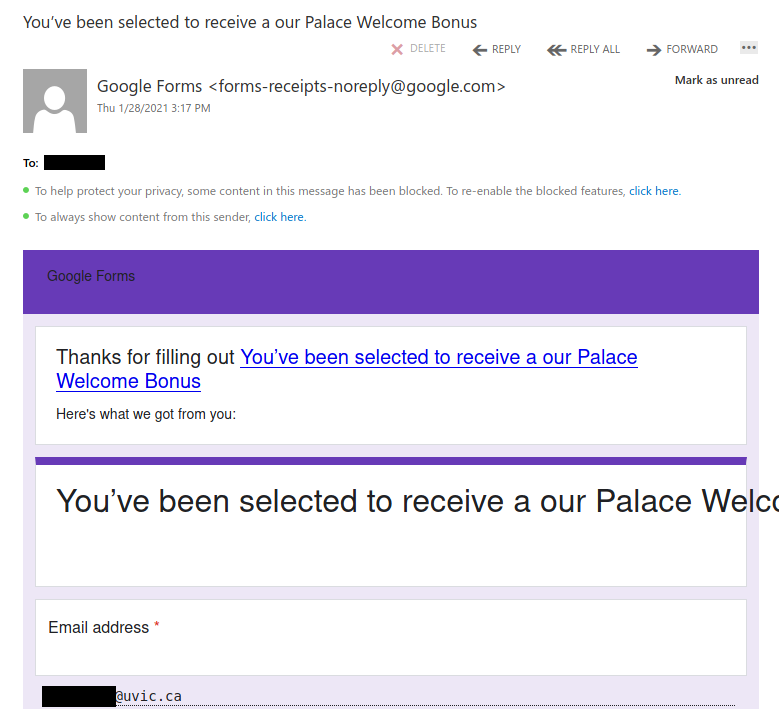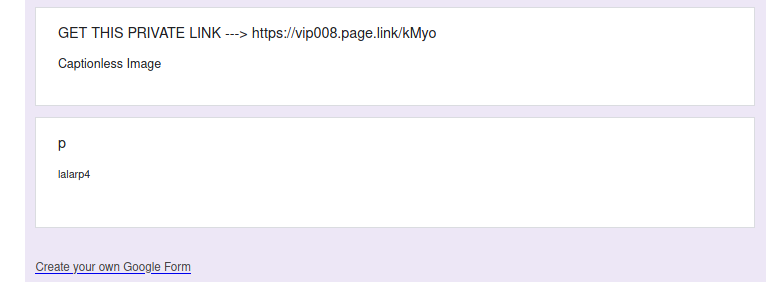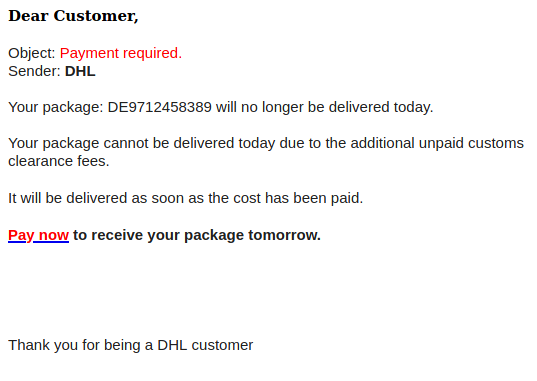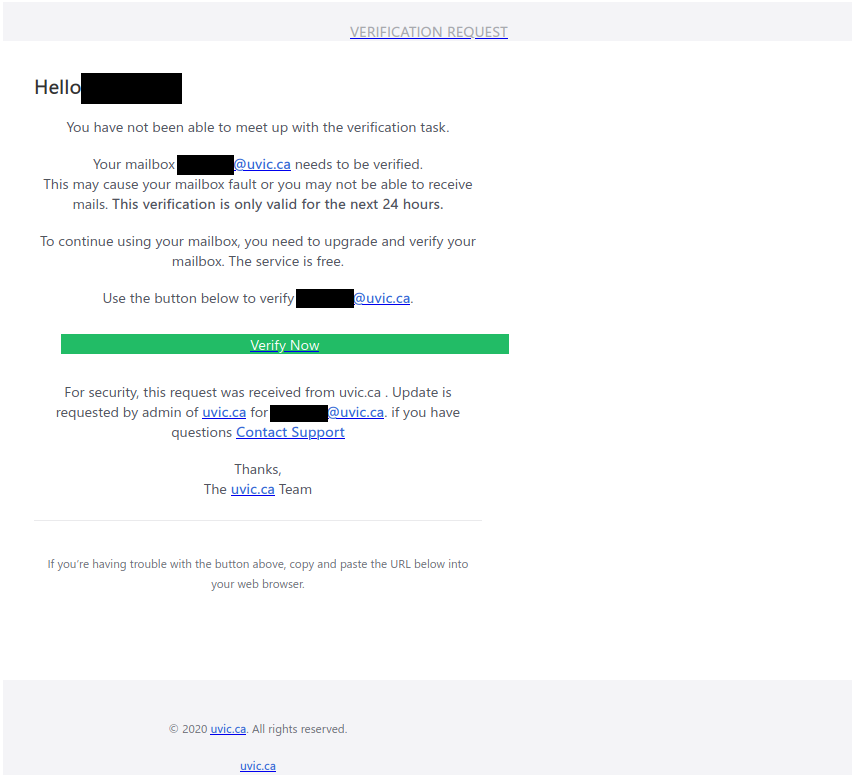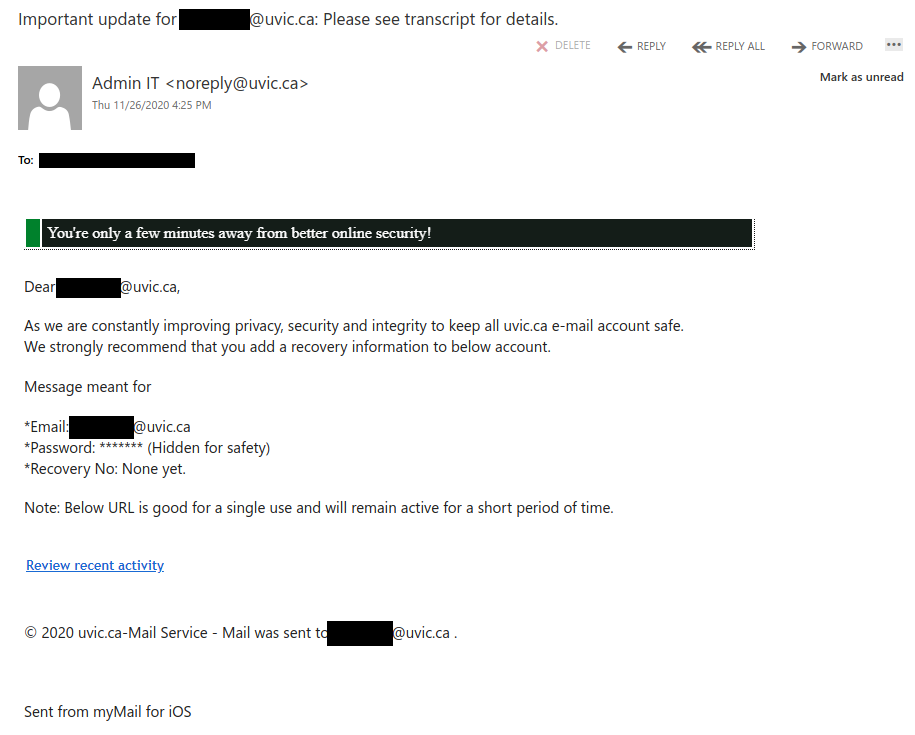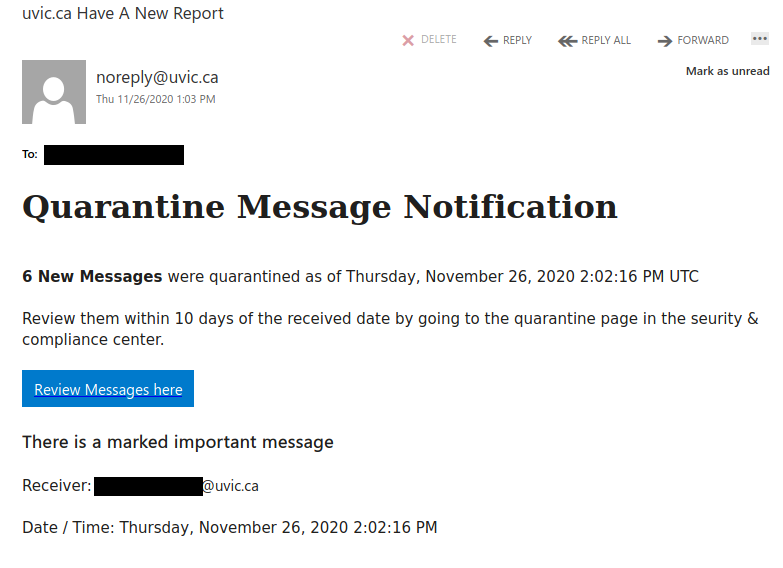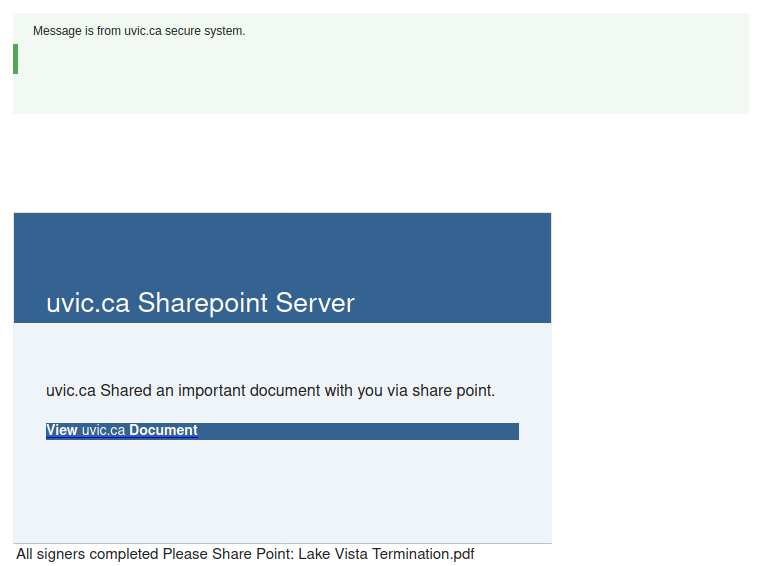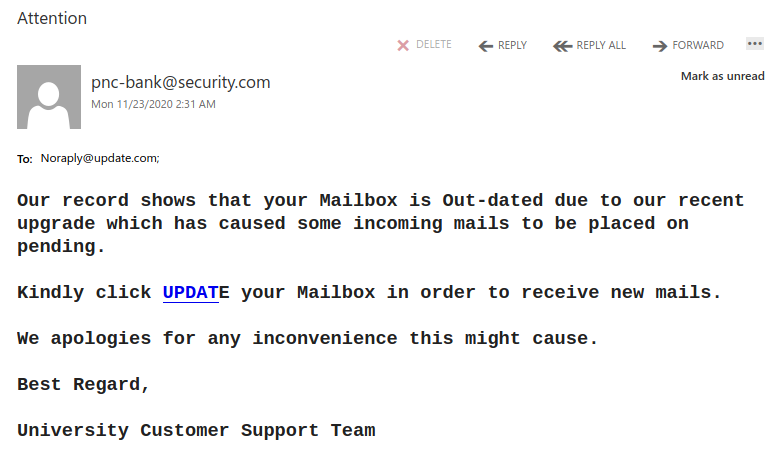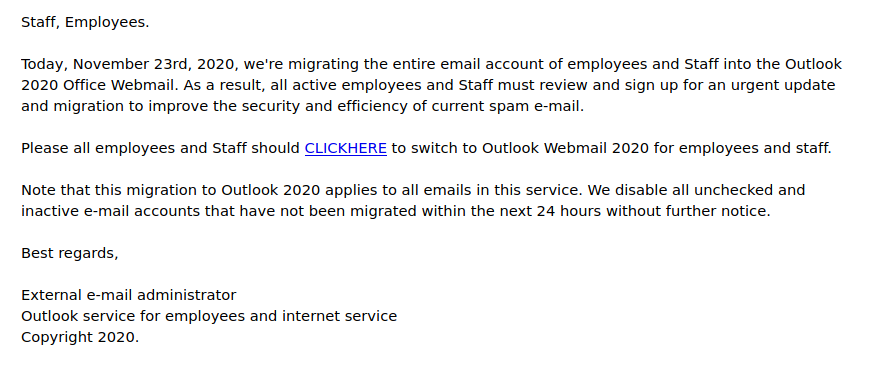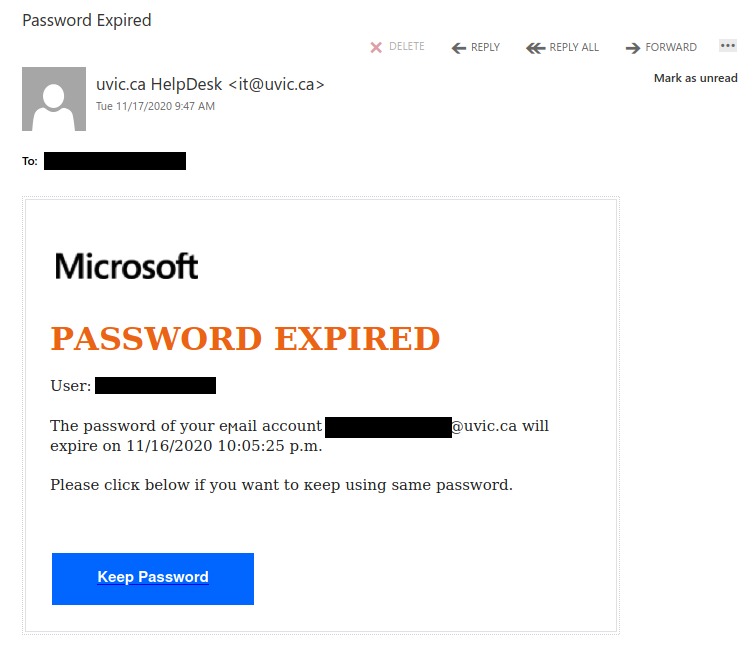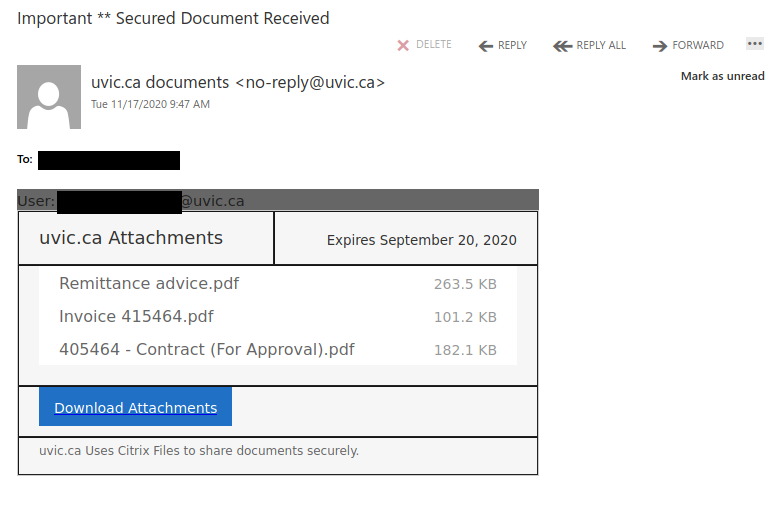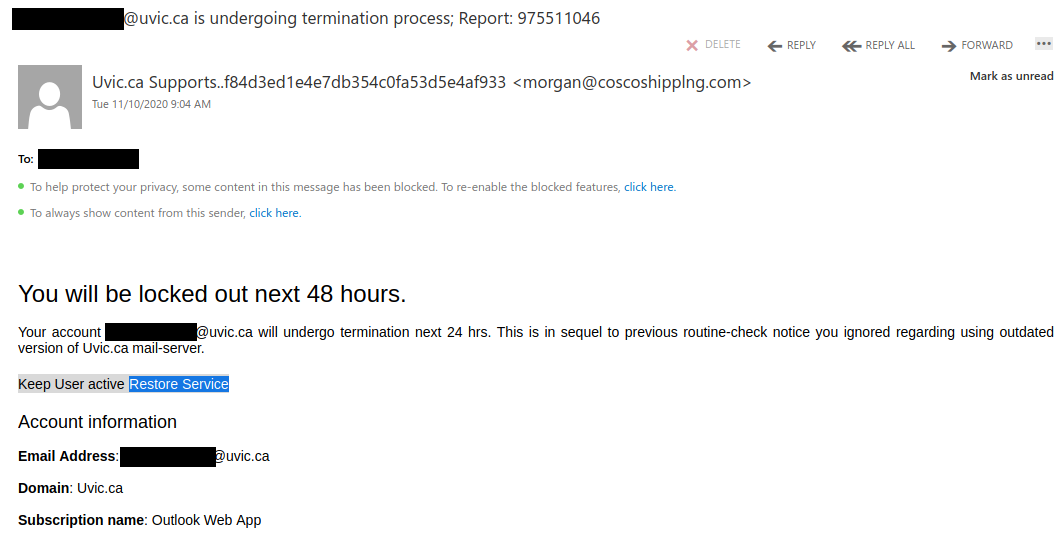This is another phish that uses COVID-19 as a lure. It claims to be a UVic internal communications email, but the non-UVic sender email is an obvious giveaway.

The email tries to convince you to click on the link for important information about COVID-19 protocols, but that link actually goes to a fake M365 page, so don’t click on it. The UVic homepage has a link to the genuine official COVID-19 communications (or you can click here to go there directly).


